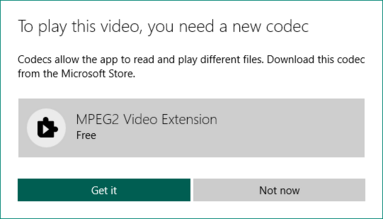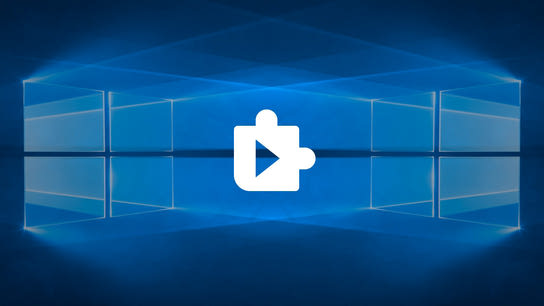In October, I wrote about how Microsoft is bringing Ogg, Theora, and Vorbis open media formats to Windows 10. They’ve managed to deliver on that quicker than I’d expect, but they also haven’t integrated it as tightly into Windows 10.
The new Web Media Extension app is already available in the Microsoft Store for free or Windows 10 and Xbox One. Though the app can be a bit hard to find in the Microsoft Store. Although the app manifest associates it with all the common Ogg media container file extensions, you can’t find it by searching for apps that support those extensions.
People are most likely to encounter Ogg, Theora, and Vorbis media files when browsing the web. The Web Media Extension does extend Microsoft Edge’s media playback capabilities when installed.
However, people won’t be prompted to install it from the Microsoft Store on demand when they encounter multimedia files in these formats. The same goes for the Movies and TV app and the Groove Music app too.
The Movies and TV app, along with all other Universal Windows Platform apps, will also be capable of playing back Ogg, Theora, and Vorbis files. However, the Movies and TV app isn’t associated with the Ogg media container file extensions and as such won’t allow you to open the files in the app — despite the app now being capable of playing them back to you. You can fool the app to open the file and have it play it back to you, but this isn’t something a normal user will know how to do.

Media and TV app prompts about codec installation.
This may change in a future version of the Movies and TV app. The app will prompt viewers to install MPEG2 Video Extension from the Microsoft Store inside the app when encountering MPEG1 or MPEG2 media files. Neither Microsoft Edge nor Groove Music currently prompt you to install any MPEG2 codecs, but Microsoft may prioritize handling this in a better way now that there are more codecs available in the Microsoft Store. Who knows? —maybe they could even convince people to start paying for optional/premium codecs in the future after they build out their platform infrastructure to support it in a good way.
Notably, the Web Media Extensions app won’t extend Windows Media Player or Internet Explorer to include Ogg container support. I’d expected that Microsoft would extend Windows Media Foundation add support in all apps, including these legacy programs. However, the Web Media Extensions is instead built as a Universal Windows App windows.mediaCodec provider.
The Web Media Extensions app is build on top of the open-source FFmpeg project. FFmpeg’s Ogg, Theora, and Vorbis playback support comes courtesy of the Xiph Project’s reference implementation libraries for Ogg media containers, the Theora video codec, and the Vorbis audio codec (also frequently found in WebM video containers.)
In other words, Microsoft is using the same open-source libraries as Mozilla Firefox, Google Chrome, and in many open-source media players and devices. Compatibility should be on par with other web browser and media players.
